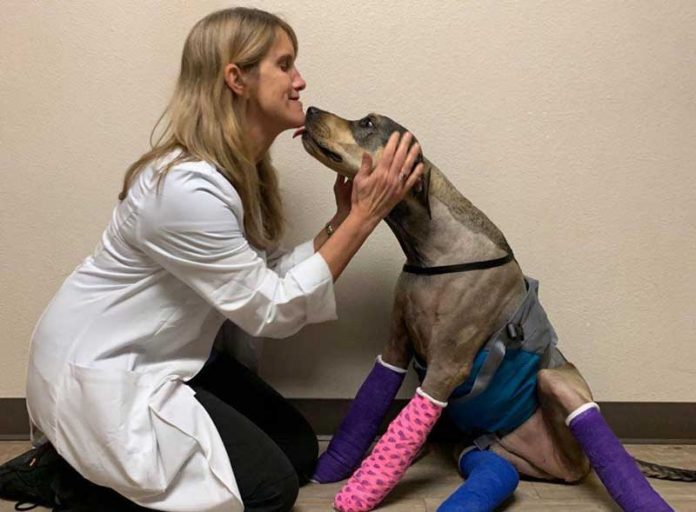Founded in 2013, the Birchbark Foundation grew out of what local veterinarian Dr. Merrianne Burtch saw as an unmet need in the community.
Burtch noticed that pet owners were facing fixable yet unaffordable crises with their animals, which often resulted in the only option being humane euthanasia.
“Dr. Burtch saw that it was horrible for families, animals and the veterinary community,” says Michelle Frampton, executive director of the Birchbark Foundation. “There was just not a resource for saving animals and supporting the humans around them all at once.”
Birchbark’s mission is to “protect and honor the human-animal bond.” They aim to do this by offering three types of programming: financial assistance, grief support and education. The nonprofit works with more than 30 veterinarians throughout Santa Cruz, Monterey and San Benito counties, as well as numerous other community and corporate partners.
When an animal needs care, Birchbark will cover 50% of the cost, with no limit. Partners will provide an additional 25%, leaving only 25% for pet owners to pay.
There are certain financial qualifications, such as that the pet owner’s total household income be 250% of the federal poverty guidelines. However, Birchbark has adopted a “here and now” policy due to the pandemic and last year’s fires, recognizing that some may have very different incomes now than they did a year ago.
In addition to financial help, Birchbark hosts a Pet Loss and Grief Support Group, which meets every third Thursday of the month at 6pm via Zoom. They also offer one-to-one calls if needed, with certified counselors.
This is an important aspect of the organization, Frampton says, as it addresses the mental and emotional health of both pet owners and veterinarians.
“We all know that losing an animal can be as devastating as losing a person,” Frampton says. “But there’s not a lot of spaces to address that.”
Birchbark’s educational programs seek to empower people to be better caregivers and advocates for their pets. Their ongoing webinar series offers various talks led by veterinary experts. The next event is scheduled for May 11 at 6pm, and will feature Dr. Burtch explaining how to conduct daily pet wellness exams. Webinars are offered on a sliding pay scale ($10-$50).
Frampton says that fundraising is Birchbark’s biggest challenge. The organization relies solely on donations and grants, and during the pandemic this was especially difficult.
“2020 was a double-edged sword of nonprofits being needed more than ever and yet we weren’t able to fundraise or get much support,” she says. “It’s challenging at times, when basic needs are priority … things like food and shelter are funded heavily, which is great. But from our stance, the human-animal bond is also a basic need. For people who have animals in their lives, it’s now more important than ever. With the increased disconnect, oftentimes that animal relationship is their only one, or their most important one.”
Looking ahead, Birchbark is aiming to find new, more symbiotic ways of working with the public and its partners. In late July, they plan to hold their largest fundraising celebration of the year (albeit on Zoom).
“Sometimes people think, ‘Oh, they’re just saving animals.’ And for some people, that’s enough,” Frampton says. “But we’re also so much more. We’re an animal organization, but we’re also a human service organization.”
To learn more about the Birchbark Foundation, reach out through email: in**@*****************on.org.












